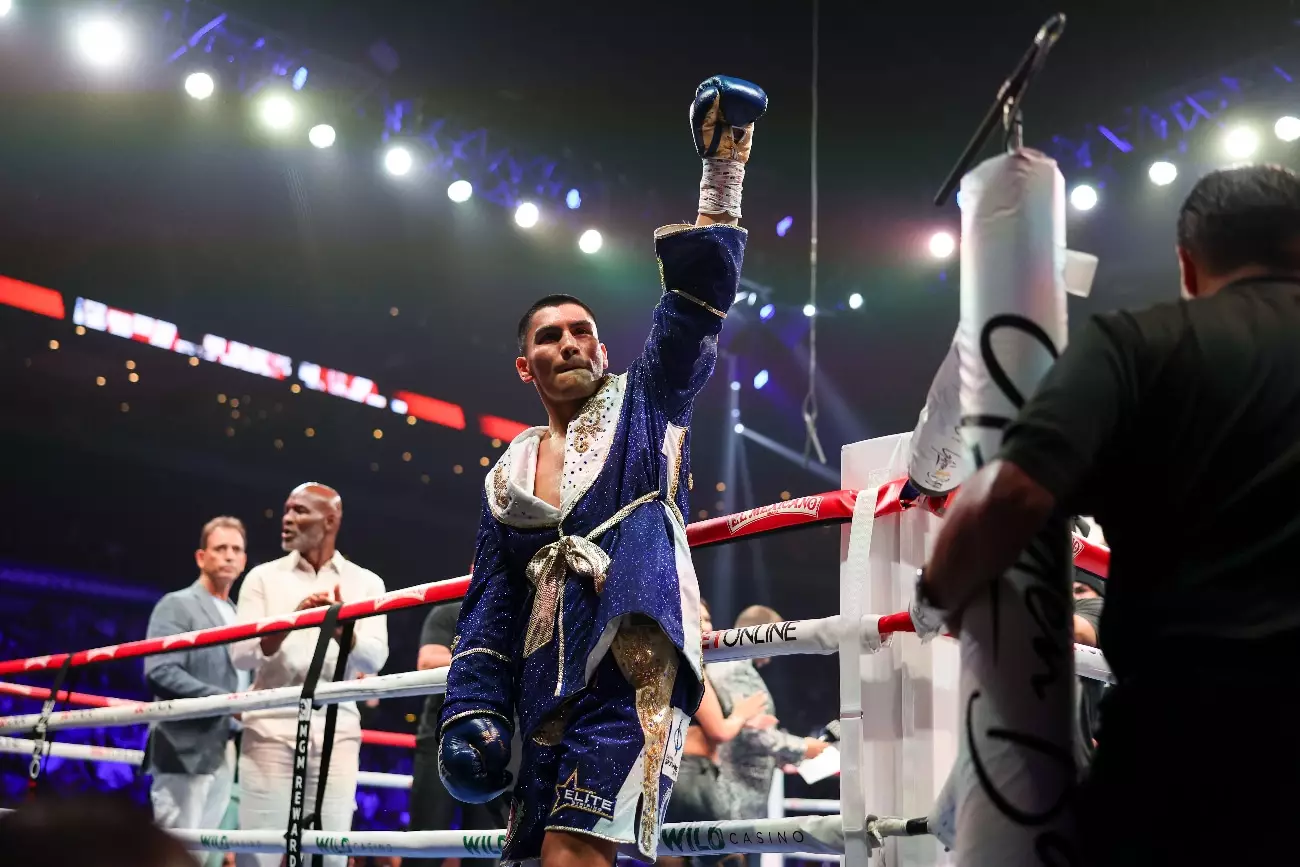The anticipated showdown between WBC interim junior middleweight champion Vergil Ortiz Jr. and the unbeaten Jaron “Boots” Ennis, scheduled for February 22nd in Riyadh, Saudi Arabia, has fizzled out, leaving boxing enthusiasts disappointed. Despite initial excitement surrounding this matchup, the negotiations ultimately collapsed, sparking debates over responsibility for the breakdown. Notably, the core of the disagreement seems to stem from the weight class, with Ennis reportedly wanting to fight at 147 pounds. This weight limit was an unattainable condition for Ortiz, who, with an impressive track record of 22 wins and 21 knockouts, would not have been able to perform to his full potential if he were forced to drain himself to meet Ennis’s requirements.
It’s easy to perceive Ennis’s insistence on fighting at welterweight as a tactical maneuver. Fighting at 147 pounds would theoretically afford him the upper hand—an advantage stemming from Ortiz potentially being less capable in a depleted state. This strategy reflects Ennis’s critical need for a confidence boost following a less-than-stellar performance against Karen Chukhadzhian in November. The fight served as a harsh reminder of his vulnerabilities, and it would be understandable for him to want a favorable scenario against a fighter of Ortiz’s caliber.
In a sport where the precision of weight management can dictate outcomes, it’s crucial for fighters to strategically choose their battles. However, these strategic decisions come with significant risks and consequences. By not agreeing to move up to 154 pounds, Ennis potentially dodged a career-defining clash but may also miss out on increased visibility and respect should he continue fighting at welterweight.
Promoter Eddie Hearn’s comments about focusing on unification bouts instead of stepping up to face Ortiz hint at a clear strategy: maintain the current title at welterweight and pursue challengers who will strengthen the champion’s resume. Ennis, as a prominent welterweight contender, stands well-positioned if he can successfully unify the titles among the three champions already in the division. Yet, the shadow of an unfinished rivalry with Ortiz looms over him—one that could haunt his career, especially should Ortiz continue to enhance his fighting prowess.
It’s essential to consider how the narrative of their non-fight may be perceived. For boxing aficionados, missed matchups often engender dissatisfaction and speculation regarding the fighters’ motivations. The failure to create an electrifying event like the one initially promised on the February 22nd card may result in both fighters losing a degree of credibility. Each has their path ahead, but the question remains—will they cross paths in the future, and will that meeting possess the same intrigue as it once could have?
As promoters scramble to find a new opponent for Ortiz on February 22nd, it’s crucial that they secure a worthwhile competitor to maintain the excitement of the event. With Sebastian Fundora reportedly unwilling to take the fight, the landscape appears challenging but not impossible. The boxing world watches intently, eager to see how Ortiz navigates this sudden change, as securing a high-profile opponent could restore some momentum and excitement.
While the Ortiz vs. Ennis fight may not materialize this February, the implications of this decision echo through the boxing community. The shifting priorities and strategies in play could ultimately reshape these fighters’ careers significantly, and for fans, the hope remains for a future bout that lives up to the hype generated by their potential clash.


Leave a Reply